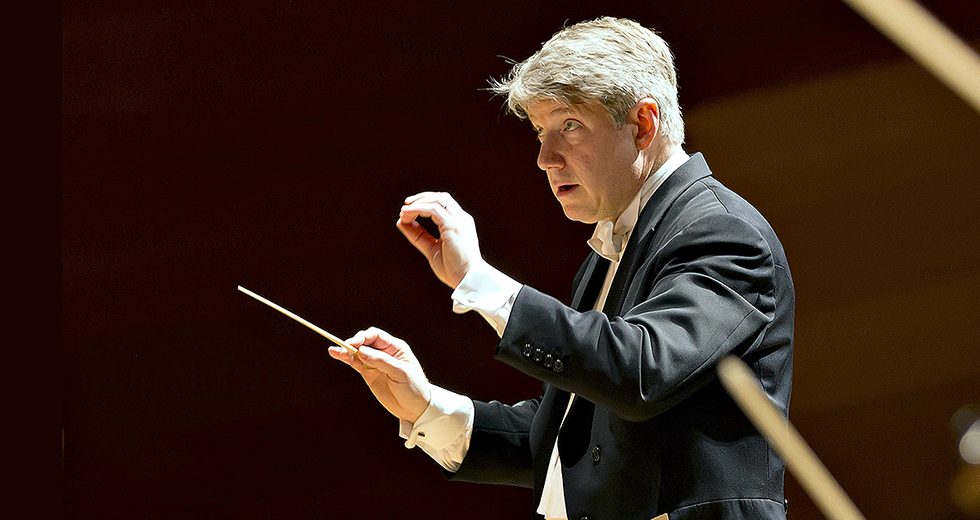
Sooner or later, because of illness, accident or whatever, virtually every conductor has to cancel an engagement. When that happens, the orchestra involved has to scramble to find a suitable replacement — not always an easy task because conductors are booked months and sometimes years in advance. That said, when a maestro gets the call as a possible substitute, he or she typically tries to help out if scheduling permits.
That’s what happened in early July, when conductor Michael Stern agreed to replace Gianandrea Noseda as guest conductor of the Chicago Symphony Orchestra for a concert Aug. 1 at the Ravinia Festival. Noseda, who has been music director of the Teatro Regio Torino in Italy since 2007, had to cancel because of surgery for a herniated disc, which he suffered in late June. Music director of the Kansas City (Mo.) Symphony and IRIS Orchestra in Germantown, Tenn., Stern had led the CSO once before in 1995 and happened to have an open slot on his calendar.
“I don’t wish cancellations or illness on anyone,” Stern said from the Aspen (Colo.) Music Festival, where he has guest conducted each summer since 1999. “It was just a lucky thing that I was available. First of all, it’s a lovely thing to come back to Ravinia. Second, the soloist [Simon Trpčeski] is somebody I admire very much. He and I were together with the Minnesota Orchestra 1½ years ago, and he really is a marvelous pianist. So between the schedule and the availability and the fact that it’s him, everything seemed to align. It worked out really well.”
For young conductors last-minute substitutions can be a big boon to their careers. Perhaps the most famous example is Leonard Bernstein, who made the front page of the New York Times after brilliantly stepping in at the last minute in 1943 for Bruno Walter at the New York Philharmonic. Fifteen years later, Bernstein took over as music director of the vaunted ensemble.
But for seasoned conductors, filling in is a way to compensate for the times when they might have had to cancel. Stern has canceled only a few times in his career, with two of those occasions coming around the births of his daughters. “The first time, it was unexpected because my daughter took her time, coming well past her due date,” he said. “I called [conductor] David Robertson, and I remember this very well: he had saved that time as family time before his season got going. He understood the situation and he stood in for me. That was incredibly generous of him.”
Sometimes, substitute conductors might change the program if it contains new or offbeat works that they don’t know. But in the case of the CSO’s Aug. 1 concert at Ravinia, the lineup consists of familiar works that Stern has conducted many times: The Moldau from Bedřich Smetana’s Má vlast, the Suite from Richard Strauss’ opera Der Rosenkavalier, Sergei Rachmaninov’s Rhapsody on a Theme of Paganini and Maurice Ravel’s La valse. “It’s wonderful music, and I can see the logic of putting together the program,” Stern said. “You always want to try and keep the same program, anyway. It’s less wear and tear on everybody.”